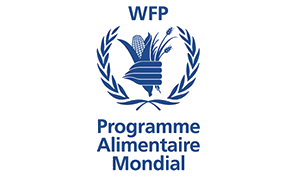Analysis of the financial and economic impacts of the organized wood-energy sector supplying the city of Ouagadougou
In Burkina Faso, wood energy (fuelwood and charcoal) is the main source of household energy. It contributes to the satisfaction of nearly 84% of household fuel needs.
As part of the organization of the wood-energy sector in Burkina Faso, forests have been managed in order to provide the populations with sustainable supplies of wood fuels and other forest products. To this end, eight (8) forest development sites located in the Center – West and Center – South regions have been created to supply the city of Ouagadougou. This study focused on:
- the analysis of the financial and economic impacts of the wood – energy sector involving these sites;
- the simulation of the impacts of the policy measure for the management of 63,000 ha of forests planned in the Center-West Region within the framework of the Priority Action Program (PAP) for the implementation of the Strategic Control Framework against Poverty 2006 – 2008;
- determining the opportunity cost of replacing fuelwood with alternative energy sources such as: butane gas and solar.
This study was carried out by a working group set up as part of a training course provided by the Support Project for Capacity Building for Analysis of the Impacts of Agricultural Policies supported by FAO. The results of
the study shows that the wood – energy sector analyzed makes a significant contribution to the national economy and contributes to the fight against poverty:
At the financial level, the activities of the consolidated sector generated in 2005 an added value of 769 892 226 F CFA and allowed the creation of many jobs. During the same year, the net operating income earned per agent
economics of the sector analyzed are established as follows:
- Lumberjack (logging operator): 50,710 F CFA per month during the three (3) months of the logging campaign;
- Wholesaler – transporter of wood: 985,556 F CFA per month, due to 15 trips of 17 cubic meters (4.25 tons) delivered monthly; the duration of the removal of the stock of fuelwood produced in 2005 having been set at 9 months;
- Wood trader – retailer: CFA 27,769 per month on the basis of a truckload of 17 cubic meters of wood sold per month for 9 months.
Concerning the management of 63,000 ha of forests, this CLSP policy measure should make it possible to create additional added value, the amount of which is estimated at 580,839,412 FCFA per year, on the assumption that these new sites will be will be able to achieve the optimum production of fuelwood set at 17 cubic meters per hectare
in the Central West Region, according to THIAM, A.T. (1998).
– At the economic level, the community derives enormous benefits from the sector. The incomes of the various agents in the sector are lower than what they could be in an economy applying international parity prices: the economic price of a cubic meter of fuelwood in the production zones is estimated at 15,795 CFA francs against a financial price fixed at 2,200 CFA francs. This economic price is relatively high due, among other things, to the average CIF price of cubic meters of fuelwood imported from Ghana, which amounts to 15,074 F CFA according to national customs statistics (MEDEV, 2007).
The trade in fuelwood at the country’s borders is most often done through informal channels with certainly more attractive transfer prices. Regarding the parity price of cubic meters of fuelwood on the wholesale market, the study
shown that it is 20,348 F CFA against an average financial price of 10,000 F CFA. On the retail market, the economic price of a cubic meter of fuelwood is 23 1998 F CFA against an average financial price of 12 823 F CFA. The existence of negative externalities due to logging was covered, which resulted in a levy (forest tax) of CFAF 300 on the selling price of the cubic meter of wood cut. However, this amount remains below the real value of the damage caused to the exploited forest resources. The enormous difference observed between the financial price and the economic price of the cubic meter of fuelwood cannot be explained by these negative externalities but probably by a national policy measure aimed at reducing imports of fuelwood.







